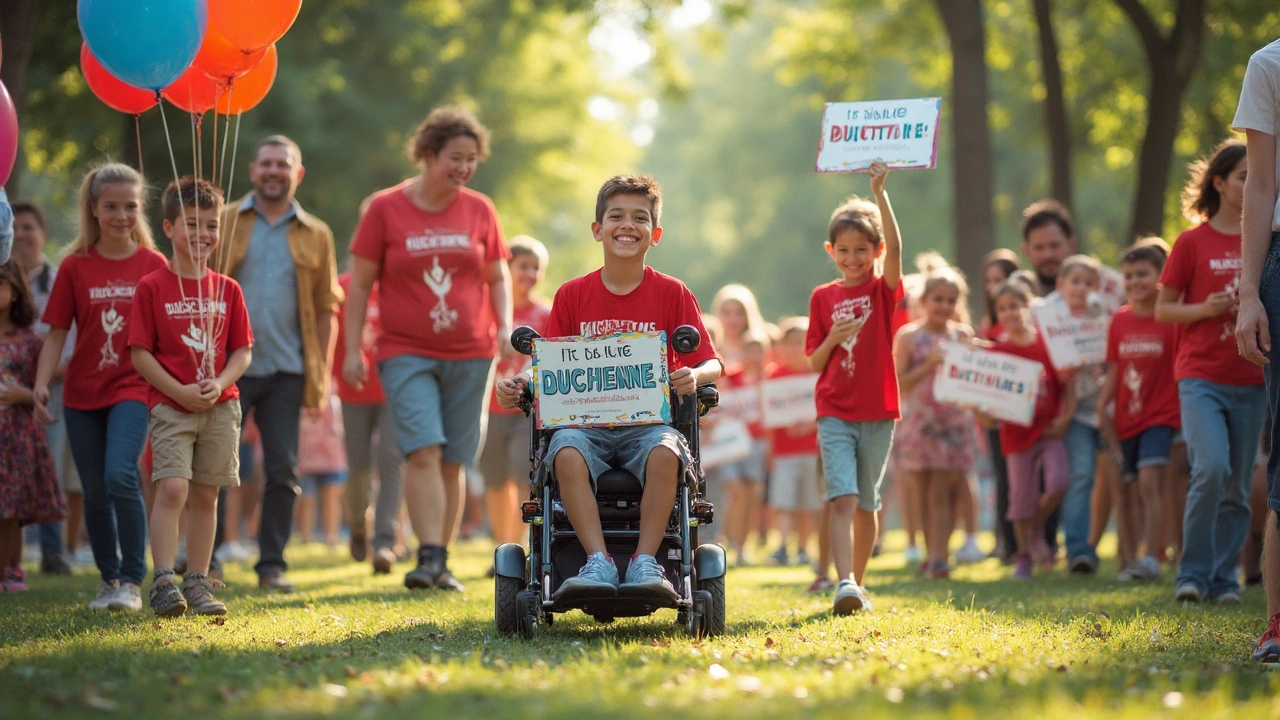Duchenne Muscular Dystrophy: What You Need to Know
Duchenne Muscular Dystrophy (DMD) is a fast‑moving genetic disease that hits boys mostly before they turn five. It tears down the muscles that let you walk, run, and even breathe. Knowing the basics helps you spot problems early and get the right help before things get out of hand.
The disease comes from a missing or broken dystrophin gene. Dystrophin acts like a glue for muscle fibers. Without it, muscles get damaged every time you move, and the damage adds up fast. Because it’s on the X chromosome, girls usually carry the gene without showing full‑blown symptoms.
Common Signs and When to Seek Help
Look for these red flags in toddlers: trouble climbing stairs, frequent falls, and a waddling gait. You might also notice large calf muscles that feel tight – a sign the muscles are turning into scar tissue. By age six, many kids need a wheelchair for long distances.
If you see any of these signs, talk to a pediatrician right away. A simple blood test for creatine kinase can hint at muscle breakdown, and a genetic test will confirm DMD. Early diagnosis opens the door to treatments that can slow the decline.
Managing DMD: Treatments and Support
There’s no cure yet, but several options can help keep muscles working longer. Corticosteroids like prednisone are the mainstay; they reduce inflammation and preserve strength for a few years. Newer drugs called exon‑skipping therapies aim to make a shortened, still‑functional dystrophin protein.
Physical therapy is a must. Stretching daily keeps joints flexible and reduces contractures. A qualified therapist can design a routine that matches the child’s ability and avoids over‑exertion.
Heart and breathing muscles weaken later, so regular cardiac check‑ups and lung function tests become crucial. Some families start using non‑invasive ventilation at night to support breathing before severe problems appear.
Emotional support matters too. Families often feel overwhelmed, so connecting with local DMD support groups or online forums can provide practical tips and a sense of community.
Every DMD case is unique, so work with a multidisciplinary team – a neurologist, cardiologist, pulmonologist, physiotherapist, and a genetic counselor. Together they can adjust the plan as the disease progresses.
Living with DMD is a marathon, not a sprint. Staying informed, catching issues early, and leaning on specialists and support networks makes the journey a lot smoother for kids and their families.

Duchenne Muscular Dystrophy Awareness Month: Ways You Can Make a Difference
Jun, 6 2025June marks Duchenne Muscular Dystrophy Awareness Month, an important time to spotlight a rare genetic disorder affecting thousands of families. This article lays out practical ways you can support the cause, from joining events and fundraising to sharing stories that break the stigma. You'll get to know the faces behind DMD, discover how research is progressing, and learn real steps for making an impact. Whether you've got a personal connection or you're learning about Duchenne for the first time, you'll leave knowing exactly how you can get involved. Dive in for unique facts, hands-on ideas, and a straightforward approach to awareness and action.
READ MORE